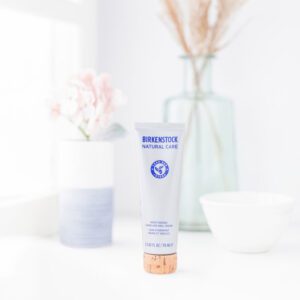Debunking the Myths: Common Hair Myths That Are Actually False

How do you keep your hair looking great? Do you follow advice from the magazines, family members, or friends? When it comes to your hair, what works and what doesn’t can be tricky to decipher. We’ve listed some of the most common hair myths and debunked them below, so that you know what actually works and what doesn’t. Read on to learn more about how to get great hair!
Myth 1: If your hair is damaged, you can’t grow it longer
 False! Your hair can always grow, no matter how damaged it is. The key to growing long, healthy hair is to focus on keeping your scalp healthy and your ends trimmed. When your ends are healthy, they won’t split and break off, which will allow your hair to grow longer. You can use products like oils or creams that have natural ingredients to help make your natural hair grow healthier. There are also many deep conditioning treatments for natural hair that can be done at home using things like eggs, mayonnaise, honey, olive oil and more. With regular care from deep conditioning treatments and protective styling techniques such as braids or buns you should be able to get your natural hair to grow very long without sacrificing its health.
False! Your hair can always grow, no matter how damaged it is. The key to growing long, healthy hair is to focus on keeping your scalp healthy and your ends trimmed. When your ends are healthy, they won’t split and break off, which will allow your hair to grow longer. You can use products like oils or creams that have natural ingredients to help make your natural hair grow healthier. There are also many deep conditioning treatments for natural hair that can be done at home using things like eggs, mayonnaise, honey, olive oil and more. With regular care from deep conditioning treatments and protective styling techniques such as braids or buns you should be able to get your natural hair to grow very long without sacrificing its health.
Myth 2: If your hair isn’t growing at the rate you want, there must be something wrong with it
False! If your hair isn’t growing as fast as you’d like, it could be a number of things. Maybe you have a tight hairstyle that’s causing breakage, or maybe your diet isn’t providing the nutrients your hair needs to grow. But it’s probably not because there’s something wrong with your hair. Most people’s hair grows at a rate of about one inch per month. For some people, this means their locks might never get longer than 18 inches long, no matter how hard they try.
Myth 3: Shampoo makes your hair fall out
 Shampoo does not cause your hair to fall out. In fact, shampoo can actually help to keep your scalp healthy by removing excess oil and buildup that can lead to hair loss. The myth may have started because people who are experiencing hair loss often notice more hair in their drain after shampooing. However, this is because they are losing more hair than usual, not because the shampoo is causing it. If you experience hair loss after using shampoo, there may be a different issue at hand. It’s best to talk with a dermatologist or other medical professional if you’re concerned about excessive hair shedding or thinning.
Shampoo does not cause your hair to fall out. In fact, shampoo can actually help to keep your scalp healthy by removing excess oil and buildup that can lead to hair loss. The myth may have started because people who are experiencing hair loss often notice more hair in their drain after shampooing. However, this is because they are losing more hair than usual, not because the shampoo is causing it. If you experience hair loss after using shampoo, there may be a different issue at hand. It’s best to talk with a dermatologist or other medical professional if you’re concerned about excessive hair shedding or thinning.
Myth 4: Straightening or Relaxing causes permanent damage
A lot of people believe that straightening or relaxing their hair causes permanent damage to their hair. This simply isn’t true! While heat styling can certainly damage your hair if it’s not done properly, it doesn’t have to be a permanent thing. If you use a heat protectant and don’t overdo it, you’ll be just fine. You might also want to try using less heat on a shorter style so that it has more time to cool down between styling sessions.
If you’re really worried about damaging your hair with too much heat, you could always opt for some protective styles like braids or twists which require no extra heat at all!
Myth 5: Black Hair Doesn’t Grow Fast Enough
 It’s a common myth that black hair doesn’t grow as fast as other hair types. But the truth is, all hair grows at about 1⁄2 inch per month. The main difference is that African American hair appears to grow slower because it is more fragile and breaks more easily. While there are products and treatments that can help with hair growth, everyone’s individual genetics play the biggest role in how fast their hair will grow. In general, people of African descent tend to have a very high percentage of slow-growing hair follicles while Asian populations often have a higher percentage of fast-growing follicles.
It’s a common myth that black hair doesn’t grow as fast as other hair types. But the truth is, all hair grows at about 1⁄2 inch per month. The main difference is that African American hair appears to grow slower because it is more fragile and breaks more easily. While there are products and treatments that can help with hair growth, everyone’s individual genetics play the biggest role in how fast their hair will grow. In general, people of African descent tend to have a very high percentage of slow-growing hair follicles while Asian populations often have a higher percentage of fast-growing follicles.
Myth 6: Regular Trims Make Your Hair Grow Faster
While getting regular trims can help keep your hair healthy and prevent split ends, it won’t actually make your hair grow any faster. Genetics determines how fast your hair grows. However, if you are looking to maximize the length of your hair, regular trims can help prevent breakage. Trimming off just a few inches every six months or so will keep your hair from becoming too heavy and prone to breaking. You should also avoid using heat styling tools that emit infrared rays like curling irons and flat irons. These types of tools use infrared radiation which is absorbed by water molecules in your hair strands, making them more likely to dry out and break.
Myth 7: You Should Wash Your Hair Everyday
You might have heard that washing your hair every day is bad for your hair, but this isn’t necessarily true. In fact, washing your hair too little can actually be worse for your hair than washing it every day. The key is to find a balance that works for you and your hair type. If you have oily hair, you may need to wash it every day. If you have dry hair, you may only need to wash it once or twice a week. Listen to your hair and experiment until you find what works best for you.
Myth 8. Washing Your Hair Too Often Is Bad For It
 Washing your hair too often is not bad for it. In fact, washing your hair too little can actually be worse for your scalp and hair. When you don’t wash your hair often enough, sebum (oil) and sweat can build up on your scalp and strands, which can lead to scalp irritation, dandruff, and greasy hair. So how often should you wash your hair? It depends on your hair type, but most people can get away with washing their hair every other day or every three days. Just make sure that when you do shampoo, you use a gentle shampoo and conditioner that doesn’t contain sulfates.
Washing your hair too often is not bad for it. In fact, washing your hair too little can actually be worse for your scalp and hair. When you don’t wash your hair often enough, sebum (oil) and sweat can build up on your scalp and strands, which can lead to scalp irritation, dandruff, and greasy hair. So how often should you wash your hair? It depends on your hair type, but most people can get away with washing their hair every other day or every three days. Just make sure that when you do shampoo, you use a gentle shampoo and conditioner that doesn’t contain sulfates.







